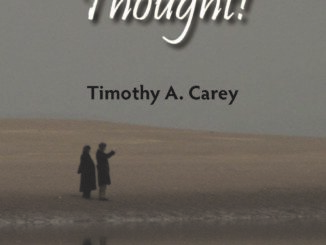Perceptual Control Theory is taught at the University of Manchester as a component of the Psychology degree.
In a student group research project, we have analysed the facilitaors and obstacles to learning PCT – click here for the pdf.
These quotes have been provided by our students over the last 4 years:
“PCT as a theory inspires me more and makes greater sense to me than any other psychological theory I have studied in the three years of psychology.”
“After learning about the theory, I realised how much the concepts are involved in my everyday functioning. It’s an easy theory to understand and relate to which is the best thing. I have become a believer/fan of PCT!”
“PCT and the lecture content has fueled many debates, outside of lectures, within my peer group far more than any previous lectures.”
“It may be the most practical/applicable module I have studied in that it seems totally relevant even ‘outside of the classroom’ unlike some aspects of psychology. The theory is also logical and sensible and does not feel like learning”
“It is interesting to learn about a theoretical framework that seems to apply to a number of domains and explain things in a different way to traditional psychological theories.”
“PCT is an interesting theory that should be involved far more in the teaching of psychological processes –this course has advanced my understanding of psychology.”
“PCT was a revelation for me, the one psychological theory that makes most sense and should be taught more widely”
“I think it is an excellent theory and obviously provides successful treatments. It should be taught more widely and introduced earlier in the course”
“I definitely think that PCT should be taught more widely. My subjective opinion is that PCT is the most plausible and encompassing model of human behaviour today.”
“I am very excited about the potential of this theory and its applications. I believe it is the most important theory I have or will learn about ever.”
“I really enjoy learning about this theory and find myself lecturing my housemates on, for example, why we shiver when our heating isn’t working!”
“It should be taught much more. The theory is new and exciting and therefore encourages students to believe in what we are doing at uni.”
“It is very different to any lecture course I have ever taken. The teaching is very enthusiastic and has enabled me to take on a new perspective to psychology that I hadn’t thought of before.”
“It was great to be introduced to a theory that, once having studied it, seems so obviously ‘true’ and its application so wide-reaching, but that is so ignored by the scientific literature that its crying out to be taught, discussed and researched more thoroughly!”
“What struck me is that PCT incorporates many familiar principles from quite divergent theoretical approaches and combines them into a unified theoretical framework. What I like about PCT is that it forces me to remain very much theoretically minded about a somewhat applied topic. With PCT I have the best of both worlds in that it enables me to combine a robust and vigorous theory (something surely every psychologist wishes to find?!) with the ‘real life’ topic of psychological distress, a topic I am very much passionate about.”
“I enjoy the real life application of PCT – in everyday life we discuss PCT in relation to our lives, which has never happened before.”
“It is a fascinating theory that deserves more attention. Its simplicity makes it easy to start, and it can be seen and applied in many domains.”
“I have really enjoyed learning about PCT and how it relates to everyday life. The theory makes one think about lots of things from a different perspective.”
See below for the current syllabus used at the University of Manchester:



